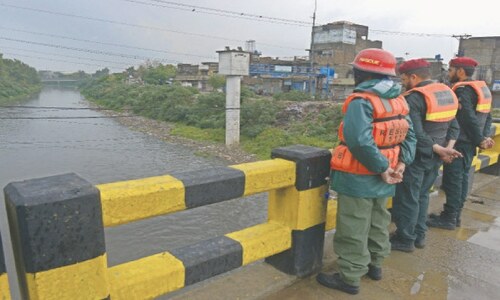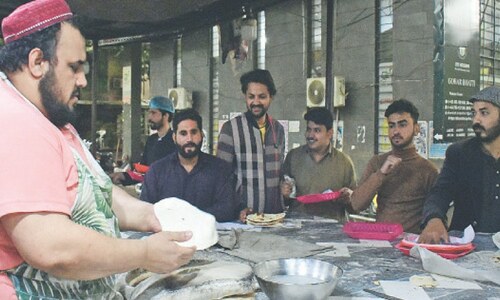A second batch of 462 corporals, about two dozen of them women, will complete an intensive course in fighting terrorism in first week of March and join the newly-raised Counter-Terrorism Force (CTF) for Punjab. With their induction, the CTF will cross the half-way mark of its proposed strength of 1,500.
At the passing out of the first batch of 468 in January, Punjab Chief Minister Shahbaz Sharif had hailed the new force as the vanguard in the nation’s fight against terrorism, extremism and sectarianism. Experts and experienced men in the field, though feel the force has been hastily raised, without a well thought out plan that the task demanded.
For instance, the 71 corporals of the first batch from Rawalpindi district police, who honed their departmental training in gathering intelligence, investigation and special operations at the eight-week CTF course, conducted by Pakistan army and police commandos and experts from Turkey, found on return to Rawalpindi that the separate armory and police station meant for the CTF are still under construction.
And an instructor with the Counter-Terrorism Department (CTD) revealed on the condition of anonymity that “a team of ironsmiths is busy these days fabricating bunk beds for them in the Police Lines”. They have been accommodated in a barrack behind the Civil Lines police station.
SP Rana Mansoorul Haq of the CTD, however, is “satisfied with the working of the corporals”.
But the instructor worried that the new arrivals will be facing similar problems. A more serious problem – a tussle between police officers and the three retired army officers of the CTF over powers and control of the force’s funds - was said to have been resolved by posting the army veterans as directors in the Northern, Southern and Central headquarters of the force.
Still money and status issues remain problematic as the police department’s budget could not afford Grade 9 pay promised by the Punjab chief minister to the CTF corporals.
The Grade 5 that was later settled for the corporal cadre attracted highly-educated but jobless youth as even this grade paid Rs75,000 per month.
That, unfortunately, gave rise to disciplinary problems because their Masters, MBA or engineering degree made many feel superior to their lowly educated police seniors.
“They (the corporals) are good in education but they are not good subordinates. Instead of following orders, they raise questions,” the CTD instructor said.
In the early stages, confusion prevailed as the corporals didn’t know what they have to do and the police officers what task to assign them, he added.
What the professionals in the police like him fear is that the CTF corporals might end up like the traffic wardens who came with higher education to the well-paid job of Sub-Inspector. Later ‘junior traffic wardens’ had to be recruited to do the job.
A senior retired police officer, who served as chief of police in two big, troubled provinces, said induction of highly qualified people on attractive salaries into police service, without homework, brings problems rather than improvement in policing. Old hands in the force feel distressed as they see their promotions blocked by the inexperienced new comers.
“Unless the plans prepared by the higher authorities are well-thought, the results would not be encouraging,” he said, recalling that he had opposed the recruitment of traffic wardens for he found the scheme illegal and against the service rules.
Social and political analysts say that usually governments raise new forces with attractive salary packages when they are under some kind of pressure.
Once the pressure is gone, the force is given new tasks, like the Elite Force personnel are now mostly found escorting and guarding the elite class.
Policemen generally feel that it would have been better and more productive, if the authorities had concentrated on improving the training and facilities of the existing police force than raising a new one.
Published in Dawn February 21th , 2015
On a mobile phone? Get the Dawn Mobile App: Apple Store | Google Play















































Dear visitor, the comments section is undergoing an overhaul and will return soon.